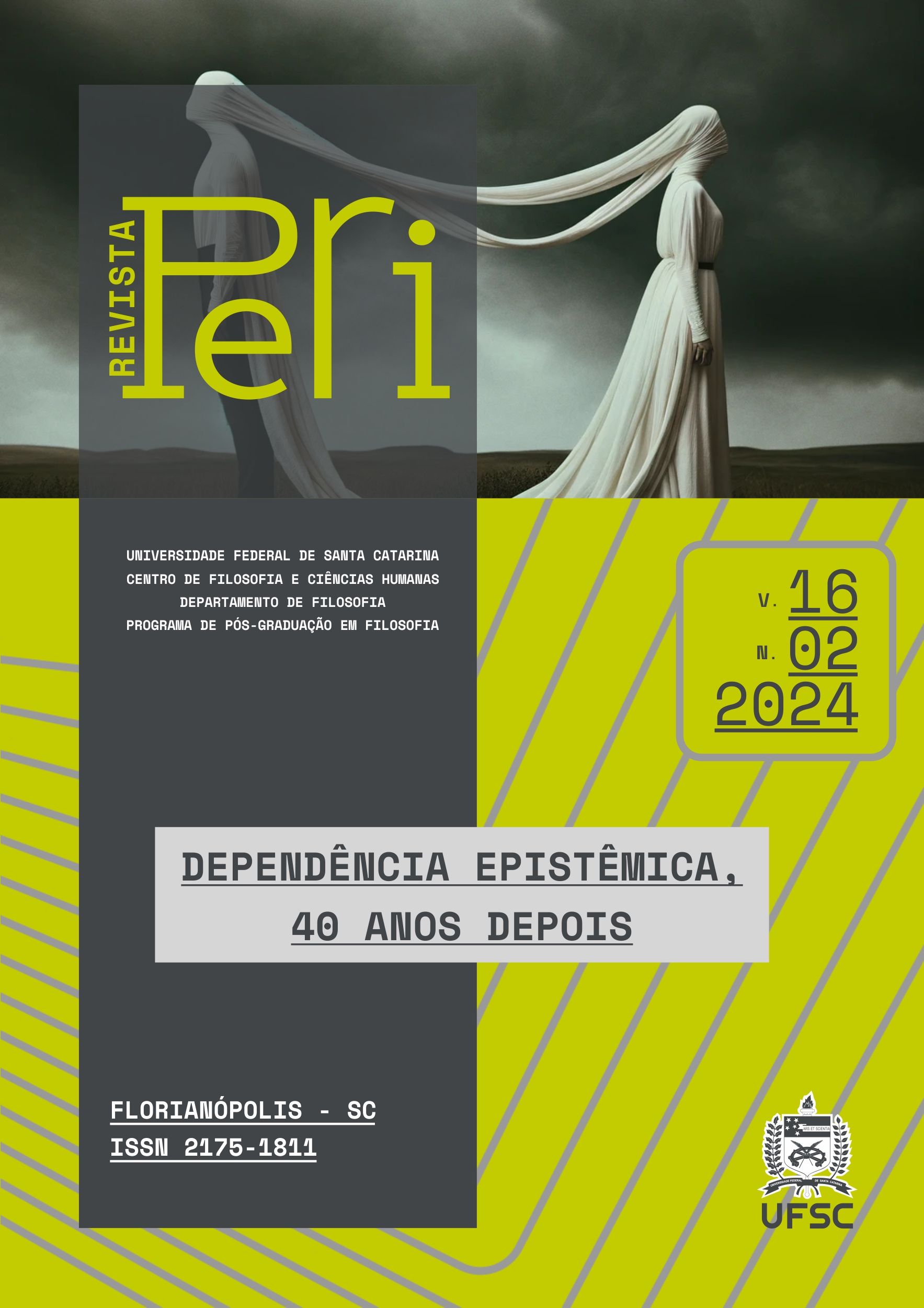EPISTEMIC AUTHORITY AND EXPERT
A CONTRAST
Keywords:
Epistemic authority, Epistemology, Linda Zagzebski, ExpertAbstract
Throughout the history of philosophy, there has been much discussion about the role of authority in practical, political, moral terms, etc. Little attention has been paid to a form of authority established from the epistemic domain, in order to understand how this type of authority operates in a relationship with a layman. Linda Zagzebski sought to substantiate this type of authority and successfully attempted to synthesize this concept into a concise argument that aimed to explain this form of authority in a broad way. Although Zagzebski's argument has brought many gains to a discussion about the role of epistemic authority, the author's argument about this type of authority does not seem sufficient to explain all the phenomena that encompass the relationship between a layman and someone who has more knowledge, especially when that someone is an expert or someone extremely qualified in a certain domain. To contrast these two figures, that is, the figure of epistemic authority and the figure of the expert, this article will seek to highlight the definitions of each of them, highlighting where they differ and what possible implications are considered in relation to these authorities, showing, finally, that an epistemic authority is a form of particular authority and that it does not have institutional force, such as the authority of an expert, within its domain of activity, and that, both the belief in epistemic authorities and in Experts seem to need a certain reflexivity from the layman so that they do not incur any imposition of knowledge or beliefs.
References
CROCE, Michel. Expert-oriented abilities vs. novice-oriented abilities: an alternative account of epistemic authority. Episteme, Cambridge: Cambridge University Press, v. 15, n. 4, p. 476-498, dez. 2018.
FETT, J. R. Anuladores. In: Compêndio de epistemologia (org. Oliveira, R. E, et al), 1 ed. Porto Alegre, p. 23-31, 2009.
GOLDMAN, Alvin. Experts: Which one should we trust?. Philosophy and phenomenological research, vol. 63, n. 1, p. 85-110, jul. 2001.
GOLDMAN, Alvin I. How can you spot the experts? An essay in social epistemology. Royal Institute of Philosophy Supplements, vol. 89: How do we know? The social dimension of knowledge, p. 85-98, mai. 2021.
LACKEY, Jennifer. Experts and peer disagreement. In: Benton, Matthew A., Hawthorne John, Rabinowitz, Dani (orgs.). Knowledge, belief, and God: New insights in religious epistemology, Oxford: Oxford University Press, 2018, p. 228-245.
PIERSON, Robert. The epistemic authority of expertise. PSA: Proceedings of the Biennial Meeting of the Philosophy of Science Association, Chicago: Cambridge Univertisy Press, vol. 1, p. 398-405, 1994.
RAZ, Joseph. The morality of freedom. 1 ed. New York: Oxford University Press, 1988.
ZAGZEBSKI, Linda. T. Epistemic Authority: A theory of trust, authority and autonomy in belief. 1° ed. New York: Oxford University Press, 2012.
Downloads
Published
Issue
Section
License
Copyright (c) 2025 Vinícius Schoenell dos Santos

This work is licensed under a Creative Commons Attribution-NonCommercial-ShareAlike 4.0 International License.
1. Autores mantém os direitos autorais e concedem à revista o direito de primeira publicação, com o trabalho simultaneamente licenciado sob a Creative Commons Attribution License que permite o compartilhamento do trabalho com reconhecimento da autoria do trabalho e publicação inicial nesta revista.
2. Autores têm autorização para assumir contratos adicionais separadamente, para distribuição não-exclusiva da versão do trabalho publicada nesta revista (ex.: publicar em repositório institucional ou como capítulo de livro), com reconhecimento de autoria e publicação inicial nesta revista.
3. Autores têm permissão e são estimulados a publicar e distribuir seu trabalho online (ex.: em repositórios institucionais ou na sua página pessoal) a qualquer ponto antes ou durante o processo editorial, já que isso pode gerar alterações produtivas, bem como aumentar o impacto e a citação do trabalho publicado (Veja O Efeito do Acesso Livre).






